Dr. Heath probably knows more undergraduates on a personal basis than any other member of the faculty. He has served for three years on the staff of the Princeton Study of Education and is conducting detailed studies of a group of students from the moment they were accepted at Princeton to the time they graduate. Until recently he has been a member of the Board of Advisers, which assists students in the selection of courses and other academic problems. Scores of undergraduates have turned to him voluntarily for help and advice. The former he gives unstintingly.
Last spring at a small faculty conference on the underclass years at Princeton, Professor Harbison of our history department raised a question that had bothered him and his teaching colleagues since World War II: “What happens to the freshmen after their first month at Princeton?” “At the beginning of the first term,” he continued, “we regularly see a freshness and eagerness that is a joy to any teacher. Within a few weeks or months the spark gives way to a uniform sophistication as if the students were under some sort of pressure to conform.” To most of us this disturbing pattern seemed all too true. In spite of better and better qualified men coming to Princeton, the situation was not improving with each class.
It would be incorrect to imply that Princeton is facing a totally new problem in its underclass years. Faculty and alumni alike would undoubtedly agree that since the four-course plan went into effect our upperclass instruction has produced by comparison a richer and more profound educational experience. The freshman and sophomore years have never been rated as “the happiest years of college.” But the many sources of information available to the University attest to the fact that somehow since World War II the problem is reaching more serious proportions; that far too many of our underclassmen lose their zest for new experience before they even reach junior year. There is considerable support for the thesis that a major factor in the accentuation of our problem is the marked shift in the composition of our student body since 1946. Our present entering classes contain not only a greater proportion of leaders from all phases of secondary school life, but they also are a far more heterogeneous group socially, economically, and geographically.
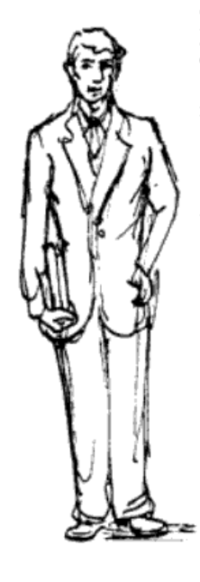
Well over half of the freshmen had experience as leaders the year before they came to Princeton. Some were number one academically, held top positions in student government, publications or athletics. All of them naturally enjoyed the honor, prestige and even the excitement that go with such prominence. Consequently, there is simply not sufficient “wheel space” at Princeton to afford a continuance of their leadership roles. To borrow an apt phrase from our Director of Admissions, Bill Edwards, these students are good bets for “high frustration potential” in their transition from school to college.
The new student is naturally going to venture into those activities that previously yielded high satisfaction. Where similar opportunities are provided he weighs the prospects of success should he make an attempt. He also asks what effect his participation will have on his ability to cope with academic and other demands placed upon him here. For every man that tries out for freshman football there are many others who seriously consider such a move but decide to pass it up. The others do make an attempt and either stick with it or after a few weeks discover how tough the competition is, change their minds and drop out. Something like this goes on in other activities as well. There are other transitional problems that are more related to the kind of preparation or the mode of life to which the student was accustomed. Here are a few:
1. The highly talented student who never had to work hard for his good grades and consequently failed to develop the necessary habits of study. This is a more common phenomenon among our high school graduates.
2. The high school or country day school boy who has been accustomed to two or three dates a week. For such men coming to Princeton means entering a restricted social life. Already the Orange Key Preceptors are plagued with the question, “What do we do on weekends?” For those whose girl friends live some distance from Princeton this is a keenly felt problem, particularly where the budget is limited. The boarding school boy, in contrast, usually views the social aspects of Princeton in terms of a newly-won freedom.
3. Finally there is the freshman who finds himself in conflict with the social climate at Princeton which is still guided largely by the tenets of eastern traditional society. He does not “feel quite right” in his new Oxford gray. Another student may note that many girls are brought here on weekends more to reflect glory upon their escorts than to be companions for a more natural relationship. At parties he discovers couples acting as if they were enjoying themselves when in fact they are ill at ease or bored.
In making this transition from school to college many a student goes through a period at some time during his freshman or sophomore year when he seems to turn inward. These periods may last a week or several months and are accompanied by a loss of momentum and self-expressiveness. He studies those about him, wondering whether his estimate of his own ability, background, or attractiveness quite stands up. His friends may try to allay his concern (if, in fact, he even reveals it to them) by reminding him that he is among the cream of the crop here. Such reminders are not particularly reassuring when he is already pondering the matter of whether he is part of the “cream.” The boys from St. Grotlesex look mighty self-assured.
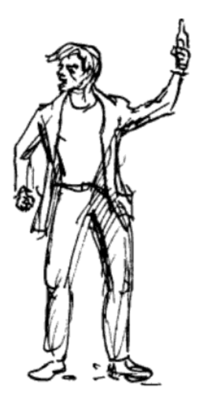
In effect, quite a few students at some time or other during freshman or sophomore year come to a point where they feel they have not reassured up to what is expected of them. Instead of a spontaneity and outgoingness, we see a caution based not on wisdom but a lack of self confidence. The consequences of this state of mind are manifold:
1. In the absence of self-assertion, deep satisfactions are lacking. Life goes on without him. A feeling of lonesomeness pervades.
2. Lacking an inner basis for action, his manner of behavior, is cued only by those about him. He either consciously or unconsciously conforms to the patterns set by others.
3. In his education, the balance of differentiation and integration is upset. In academic work the student readily learns that matters cannot be viewed as black or white but as progressively differentiated shades of gray. He learns well to be a discriminating person, to show the “proper restraint.” Such is not the case for integration. Before the educational process is complete the subject matter learned must be related by the learner to himself and his outlook on life. Integration cannot take place in the absence of self-assertive experience. Values are not taught. They are discovered through personal experience. When differentiation is not followed by integration the old guideposts of action are torn down with none to take their place.
4. The backlog of unexpended impulses in a well-nourished undergraduate does not lie dormant forever. Where a student’s natural aggressiveness cannot be expressed directly in the appropriate context, we see him prone to over-reaction and “blowing his top” at the wrong time. A small amount of confinement or aggression shown toward him will trigger off a blast of counter-aggression. He is irritable, hypercritical, and in general makes poor company. When all this energy has no place to go, he becomes a tinder box, which may easily explode into “objectless” riots and vandalism. Chopping down a dormitory door might be viewed as one form of over-reaction, an act of displaced aggression.
And so we can invoke for this discussion a familiar theory of psychological development which might be worded in general and abstract terms as follows:
We were born to be individuals. Only through our self-assertions can we attain that individuality. The direction of human growth is largely outward. The focus of attention in the growing expressive individual is beyond the self. But a necessary condition to self-expression is confidence in oneself.
The human organism is bent on maintaining integrity and achieving satisfaction. When needs and satisfactions are sought in vain, the individual switches to the defense and growth comes to a halt. In this situation the protective mental mechanisms (e.g. repression) establish a prior claim on the energy that once supported the expressive urges. Adventurous curiosity and the warmth of human relations fade. People and the rest of the world are then cast in quite a different light. In such a context, the educational process has little meaning. It is all form and no flow.
This is a dark event when it happens to a student and naturally a disturbing one for parents and friends alike. In all likelihood, however, it is but a preliminary and very necessary phase to a later and more enriching level of adjustment. These low periods come, as we have said, in consequence of frustration and stress. Since stress is the great separator of the men from the boys, what merits our attention is not so much the nature of the problem but the way in which the student meets the challenge.
The student body in a liberal arts college can be placed in three general groups according to their respective response to liberal education:
A. Those who, with minor exceptions, live a rich and satisfying life. They work hard and play hard. Their difficult periods come, perhaps, before college.
B. Those who emerge intellectually and socially in junior or senior year only after some hesitations in the underclass years,
C. Those who do not emerge. “Difficult periods” are not as characteristic of this group as group “B” above. In fact, at first glance, some may appear to go through college thoroughly enjoying themselves, but a close look suggests that the satisfactions are neither deep nor enduring. To them a solution to a problem means coming out unscathed and standing where they were when they started. They avoid commitments to people and to their work — all with an air of utmost respectability.
There is amazingly little difference between these three categories in aptitude scores, amount of pre-college training, socio-economic status, or even leadership experience in secondary school life. What, then, is the difference?
A study of the first group, those who live the intensive life, offers some significant leads. By and large one finds in their pre-college life two characteristics that are not shared by the remaining two groups:
1. Their friendships are deep. These associations are more than the ties held together through common interests. Not only is there a warmth in their peer relationships but there is a sharing of inner selves without one party becoming dependent upon the other. These friendships are intrinsically satisfying and not just a means to an end. (To a surprising extent the “all round boy” who comes to college so highly recommended is characterized by more shallow interpersonal relationships.)
2. They possess a genuine intellectual curiosity. Not only do they react imaginatively to a wide variety of life occurrences, but they pursue and test their conceptualizations in a spirit of real adventure. To a greater extent than either of the other groups they shape their own environment. For them, education is an active process.
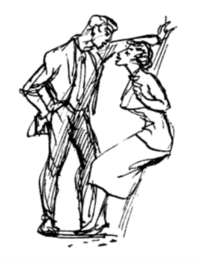
It can be readily seen that deep friendships and self-propelled intellectual activity are creative experiences and as such are probably highly reliable indicators of an underlying emotional maturity. One cannot give himself to either his friends or his inquiries unless, in a deeper sense, his own life is in order. A prerequisite to positive involvements with people and work is a solid core of self-respect. A major proposition of this commentary is that there exists among the student body, the underclassmen in particular, a wide dispersion in levels of emotional maturity. The undergraduate population is far more homogeneous in the dimension of intelligence and special talent.
Finally, no discussion of the underclass years should omit mention of those “external” pressures whose source is outside of the university. The demands from the home to achieve sufficient grades for draft deferment or scholarship eligibility have brought about an unfortunate emphasis upon academic grades per se rather than upon the intrinsic worth of the educational experience. Such an overemphasis acts to disrupt the student’s natural selection of courses. He sometimes omits interesting but difficult courses simply because he is afraid to risk a poor grade. Just as serious a consequence, however, is that under these pressures for grades there has been an increased tendency to view fellow students as competitors rather than as colleagues in a great endeavor.
Many steps are being taken at Princeton to alleviate the conditions described here. A much-needed Campus Center will soon be available; freshmen are for the first time permitted to take part in extra-curricular activities from the very opening of college; the faculty has conducted a series of lecture-discussions designed to give entering freshmen a better idea of what a liberal education is all about; and the University as a whole is conducting a thorough re-examination of the underclass curriculum. Two other developments deserve special mention because they have been initiated by the undergraduates:
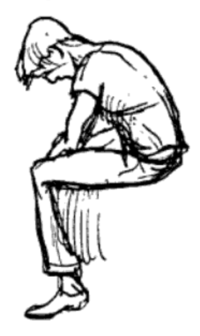
1. Student Government
During orientation week the chairman of the Undergraduate Council announced to the first meeting of the freshman class that all men interested in being considered for the Freshman Council (which has previously been appointed by the Dean) should sign up for interviews in Murray-Dodge Hall. Two hundred and eighty-two signed up. This is a tremendously significant figure. It reveals that on-third of the Class believed themselves qualified for leadership and that they had a chance, in competition with their classmates, to exercise that leadership. Obviously a large proportion was doomed to disappointment.
But the Undergraduate Council was also interested in finding men for its Staff, instituted last year to take some of the burden from the Council members and encourage broader participation in student government. Last month fifty of the aforementioned 282 freshmen were selected and assigned to one of seven of the Council Staff committees to work under sophomore chairmen and vice-chairmen. These committees do the investigative and research work on problems being considered by the Undergraduate Council. The Staff is making possible responsible student government at Princeton but it is also incorporating early into campus life a larger number of freshmen who might not have had any share whatsoever in student government at Princeton.
2. The Orange Key Advisory Council
Last spring the Undergraduate Council for the incoming freshman class in order to bring the freshmen into more intimate contact with upperclassmen. Sixty-five outstanding members of the Class of 1955 were selected to act as undergraduate advisers and preceptors to members of the Class of 1957. The Orange Key volunteered to take on this Advisory Council as one of its major projects. This summer the whole freshman class was divided into sixty-five precept groups of twelve men each. Using the principle of complete heterogeneity, the groups were made up in such a way that no duplication of secondary school, hometown, or dormitory entry exists within any group. Insofar as possible two or three engineers and at least one southerner and one far westerner are represented in each precept group. The plan is now in action. Since orientation week each preceptor has been seeing his men in individual talks and informal precepts, which the freshmen are calling keycepts. Next week these Orange Key preceptors will hold their third precept of the many scheduled throughout the academic year. So far the response of both the preceptors and the freshmen has been enthusiastic. It seems to both puzzle and please many of the freshmen that an upperclassman would take that much interest in them. And most important, perhaps, the individual freshman is being given an opportunity to exchange ideas and experiences with eleven classmates whom he might never have come to know.
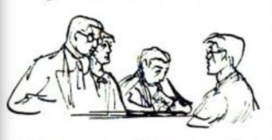
These are some of the measures that have been taken to absorb the energies of underclassmen and keep them from turning inward, with the resulting loss of intellectual curiosity and self-expression. If they serve modestly to keep alive the eagerness and individuality with which our students come to Princeton, the expense in money and effort will be well worth it. And Princeton will have realized more fully Witherspoon’s definition of the purpose of a liberal education — “to set all human powers in motion.”
This was originally published in the October 16, 1953 issue of PAW.











No responses yet